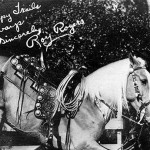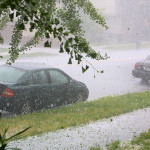“Advertising injury” can be tricky. In theory, the term applies to the type of harm that can be inflicted through advertising media—defamation, disparagement, violation of privacy rights or misappropriation of intellectual property. Because trademark infringement injures plaintiffs in a different way, trademark claims are generally excluded from coverage—except where the insured has used an infringing text or trade dress in an advertisement. That wrinkle makes it ... Keep Reading »
Damage/Loss
Ninth Circuit Finds Defects in the Construction of a “Known-Loss” Exclusion
A mason who performed work on a residential project was notified in 2006 that cracks had developed in his work. Several months later, the mason purchased a commercial general liability policy that expressly excluded coverage for property damage, if an insured "knew that the … damage had occurred, in whole or in part." In 2007, the project's general contractor sued the mason, claiming that defects in his work had caused the property damage that was the subject of a suit ... Keep Reading »
Off Schedule: Texas Supreme Court Rules That Ambiguity Produces Blanket Coverage
Owners of multiple commercial properties can significantly reduce their insurance premiums by purchasing a scheduled policy, under which each item of covered property is separately reported (or "scheduled"), and the coverage limit for any one item is determined independently of damage to any other item. The alternative is a blanket policy, which applies a single coverage limit to the aggregate losses of all the covered properties. Recently, in RSUI Indem. Co. v. The ... Keep Reading »
The Eleventh Circuit Holds that for Sinkhole Losses, Structural Damage ≠ Any Damage to a Structure
The land in Florida is prone to sinking and insurance companies must often scramble for solid footing on which to anchor the scope of coverage for sinkhole losses. In Hegel v. First Liberty Insurance Corporation (11th Cir. Feb. 27, 2015), the Eleventh Circuit provided some much needed guidance when it held that the plain meaning of "structural damage" in a homeowners policy cannot be simply "damage to the structure" in the context of determining coverage for a sinkhole ... Keep Reading »
Down in the Dumps: Court Refuses to Apply Pollution Exclusion in Landfill Seepage Case
Claims involving potential coverage for pollution liability pose unique challenges for insurers. In many cases, the polluting activity occurred decades ago and over a large span of time, with only a fraction of the activity occurring during the policy period. As a result, an issue in pollution liability cases is whether an insurer is obligated to indemnify an insured for the entire amount of damages resulting from pollution, or whether an insurer's obligation may be ... Keep Reading »
No Manifestation Destiny: The Seventh Circuit Declines to Set a Standard Trigger Rule for First-Party Property Policies
When I ... feel my finger on your trigger, I know no one can do me no harm." - John Lennon Property damage can be sudden and dramatic, but it can also be subtle and insidious, and that can make it hard to identify the moment when properly coverage is implicated. As a result, courts have recognized several different "triggers," depending on the circumstances of the loss and the type of coverage involved. In November 2014, in Strauss v. Chubb Indemnity Insurance ... Keep Reading »
“At-Issue” Waiver: It Ain’t Over Till It’s Over
When a claim goes south, the insured often pursues a bad faith claim. But even when the bad faith claim settles, that doesn't always mean the litigation is over. And that means it's still necessary to be vigilant about preserving the confidentiality of privileged communications. One way that insurers often waive the privilege inadvertently is by making statements during discovery that put the advice of counsel "at issue." Last month, in Seneca Insurance Co. v. Western ... Keep Reading »
“Voluntary” ≠ “Obligatory”: Good Deeds Do Not Trigger Coverage
Liability policies typically provide coverage for amounts the insured "become[s] legally obligated to pay"—but they leave open the question of how that obligation should be determined. Judgments and settlements clearly create "legal obligations." Sometimes, a statute can, too: several courts require insurers to pay for remediation efforts mandated by environmental laws, even if government authorities have not yet ordered any action at the polluted site. But the ... Keep Reading »
What’s in a Proper Name? Coverage Opinions Take Different Approaches
In his 1892 paper, “On Sense and Reference,” Gottlob Frege, the German philosopher who inspired the work of Bertrand Russell, explained that the definition of a word or name can have two components. One, “reference” (or “referent”), is simply the person or object to which the word refers. The “reference” of “Napoleon Bonaparte” is the French emperor who bore that name. The second element, “sense,” is the name’s “mode of presentation,” which reflects the manner in ... Keep Reading »
The Limits of the Real: Narrow Readings of Policy Terms put Losses in a Virtual Realm
Ludwig Wittgenstein famously declared that “[t]he world is everything that is the case.” In three recent cases involving liability policies, courts remind us that injury can occur beyond the limits of the world that consists of “property”—or even of “substance.” 1. PPI Technology Services, L.P., was hired to “assist in well-planning” on three oil leases in Boudreaux, Louisiana. Its responsibilities included overseeing the drilling of wells. When PPI dug an empty ... Keep Reading »
- « Previous Page
- 1
- …
- 5
- 6
- 7







